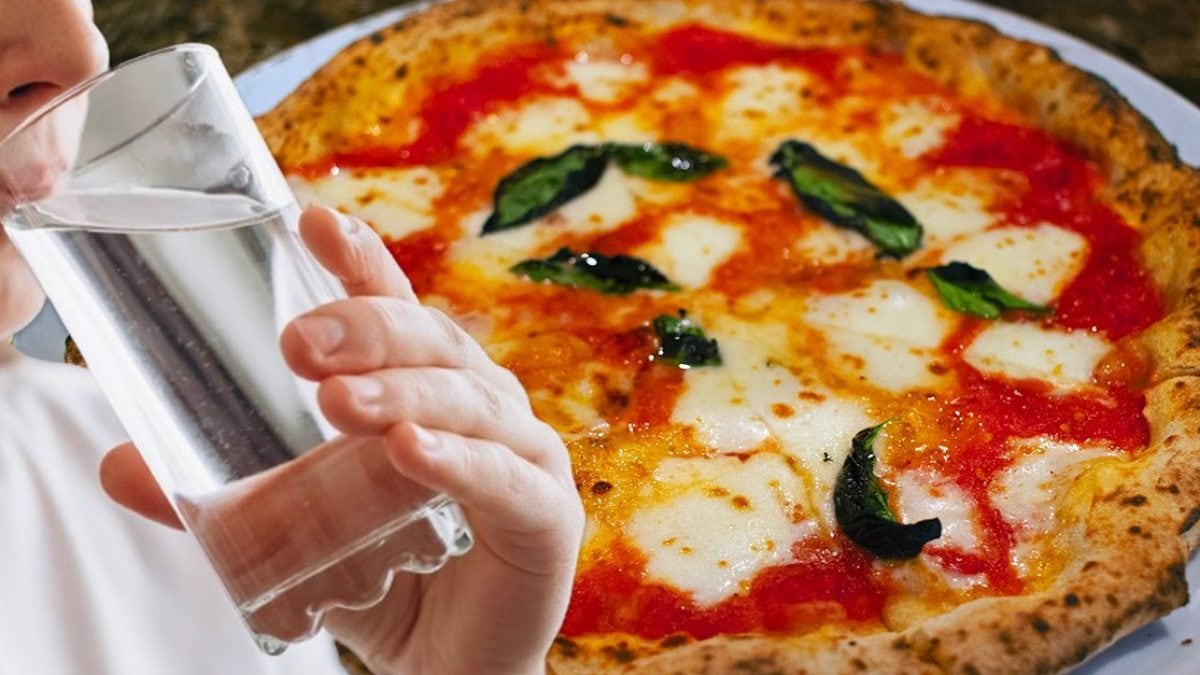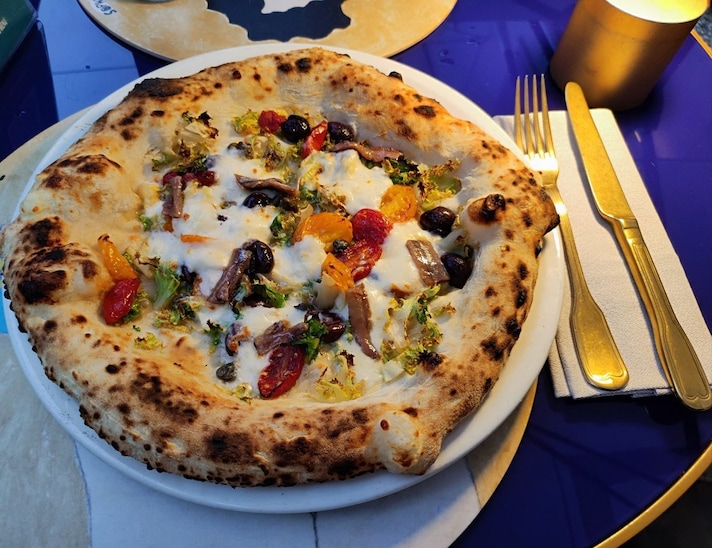
Many people say that pizza is judged the day after eating it: this is because you have to see how it makes us "face the night." Does pizza make us bloated? Does it make us thirsty? The latter, in particular, is a really strong discriminating factor in the world of leavened products. Many people are in fact overcome by a sudden thirst at night: it's all true, it's not a false myth, pizza makes you thirsty if it's not made well. When evaluating a good pizza, this can indeed be a discriminating factor, but you have to be very careful with your judgments: it's not always the pizzeria's fault, sometimes it's our fault.
Are You Sure it's The Pizza That Makes You Thirsty?
Pizza can make you thirsty for a multitude of reasons. It's almost always the dough's fault: not the leavening, but the incorrect maturation. Overly strong flour used for a pizza that doesn't mature for long can cause this result. During maturation, the hydrolytic enzymes in the flour, activated by water, break down starches and proteins into simple sugars that then feed the yeast for the leavening process. Proper maturation manages all these steps, effectively stopping the leavening process. To do this, lower the temperature of the room where the dough is resting (just put it in the refrigerator). Once the maturation process is complete and the dough is divided into loaves, the leavening is completed at room temperature. If any of these steps are performed poorly, pizza is very likely to cause annoying thirst at night.
Making matters worse is the use of salt and the hydration of the dough: salt kills the yeast and stops the entire process, much like the refrigerator would. This step isn't absolutely wrong—it depends on the individual case—but too much salt naturally leads to thirst. Hydrating the dough is also essential to remedy this problem: water, in fact, helps stabilize the pizza's air pockets during baking and reduces the salt content of the dish.

Another key factor to keep in mind is the ingredients: we're not just talking about the toppings; even the wrong water or, more likely, poor-quality flour can make you thirsty after eating pizza. Then there's the issue of the actual toppings: there are elements that make you thirsty even when eaten alone—just think of classic pizzas like Diavola or Capricciosa, which, with their cured meats, significantly increase the salt content. Flavor can also be balanced, but the "after-dinner" experience is highly subjective. Finally, remember that alcohol dehydrates our bodies: drinking wine or beer "drains" our reserves and can lead to excessive thirst.
Late-night thirst is therefore, in the vast majority of cases, the fault of the pizza chef, who failed to perfectly manage this multitude of factors. However, we also have a small share of responsibility: if after eating pizza we indulge in a sweet dessert or overindulge in alcohol, we must then take these two factors into account when "judging" the place we visited.
;Resize,width=767;)
